Stephanie Hayden
Stephanie Hayden has threatened to sue me for defamation if I publish this. I publish this in the public interest as a citizen journalist given Hayden is a lawyer, and a controversial self-styled public figure, whose conduct has raised many questions and engendered much spirited debate from members of the public.
I also publish this to stand up for freedom of expression and freedom of the press. It is important that our society can ask hard, difficult questions of self-styled public figures on controversial topics such as serial litigation involving people exercising freedom of expression rights as well as other uncomfortable matters.
Stephanie Hayden is no stranger to litigation. Since 2016, Hayden has filed at least 20 cases with the High Court of England and Wales. Most of these cases allege similar grounds: harassment and misuse of private information. Some of them have also included a claim for defamation and blackmail.
For the most part, these stem from claims made by the defendants around the biological reality of Hayden’s sex, as well as the public circulation of pre-transition photographs and pre-transition names that Hayden says amounts to harassment. Additionally, some have circulated information regarding spent convictions for which Hayden is rehabilitated under the Rehabilitation of Offenders Act 1974 which Hayden says amounts to misuse of private information.
It comes as no surprise, therefore, that Hayden is well-versed in litigation.
When I attempted to speak to the defendants in the various legal claims that Hayden has issued over the years on the record, many refused, stating that Hayden is a “nightmare”, that Hayden has “overshadowed” their life for several years, and that they could do without the stress and worry given, in their view, Hayden’s “vexatious and malicious” litigation against them and the fear that Hayden would somehow re-enter their lives and attempt to litigate against them again. They would only give limited unattributable quotes about their experiences.
Serial litigation
Looking at the list of cases filed in the High Court, it is not difficult to understand why. Hayden has repeatedly sued individuals for harassment, defamation, and misuse of private information. Litigation is expensive and time-consuming to pursue and defend.
However, it is only costly for the defendant with means. Hayden is entitled to use a court scheme called Help with Fees that waives all court fees. This means, for example, Hayden does not pay a filing fee for any documents needing to be filed with the court, nor a hearing fee to be heard by a judge.
To launch and pursue a typical High Court claim for harassment, the following fees would need to be paid, at a minimum:
- A filing fee of £455
- A hearing fee of £1,175 on the multi-track
Over £1,500 already, waived which effectively grants a “free” run at litigation each time because it costs the claimant nothing to issue claims as a result. Indeed, the usual fee waiver order explicitly states it does not reflect the merits of any claim. So it is entirely possible for a random citizen eligible and availing of the scheme to bring claims of limited merit repeatedly at the taxpayers’ expense. That in itself is concerning, but will have to be the subject of another post as the matter is nuanced, as I believe access to justice is a fundamental cornerstone of our society.
This figure does not include any fees for legal representation, etc. although in all cases to date Hayden has been a litigant in person. A litigant in person is someone who represents themselves at court.
It also does not include any subsequent fees for applications, orders, notices, appeals, etc. Many of the defendants in the listed cases below found it stressful and worrying trying to find the money to cover their legal expenses.

Here is a list of known cases litigated by Hayden and, where available, their outcomes ordered chronologically as best I can.
Even where successful on the initial claim, further proceedings tend to end with the claimant arguably not getting what may be perceived as the intended result. For example, while Hayden has been able to obtain an interim injunction against a defendant accused of harassment, so far Hayden has failed to secure a final injunction and/or damages for alleged harassment, although Hayden may well be satisfied with that result.
Additionally, in the case of defamation, for example, it was twice found in separate cases that the published material was not defamatory, and that in Family Education Trust, the claimant’s inferential case was “devoid of reality”.
Please be aware that in some cases, Hayden (the claimant) is referenced under a different name. These names form part of the public court record. I have kept them as-is because I don’t believe I am allowed to modify public records.
- Anthony George Steven Halliday v Easyrentacar [2003] EWCA Civ 1063. Claim number: B1/2003/1268. Outcome: Appeal denied, costs awarded to the Defendant.
- Steven Paul Hayden v Paul Moss and Casandra Moss. Claim number: QB-2013-001104. Outcome: Found for the Defendant
- Steven P Hayden v Malcolm Thomas Hardy and Alexander Usatykn. Claim number: QB-2014-005217. Outcome: Unknown. No progress since June 2015
- Steven P Hayden v Maunder Taylor and Christine Axton. Claim number: QB-2014-005255. Outcome: Notice of Discontinuance filed July 2014 (in other words, Hayden dropped the claim)
- Steven P Hayden v Malcolm Thomas Hardy (aka David Greer). Claim number: QB-2014-005367. Outcome: Unknown. No progress since 2015
- Steven P Hayden v Jonathan Romelle Warner. Claim number: QB-2016-000125. Outcome: Claim stayed. This means that the court proceedings were suspended and either the claimant or the defendant would need to apply to court to resume them
- A counterclaim to the above was filed in Jonathan Romelle Warner v Steven P Hayden. Claim number: QB-2016-000222. Outcome: Unknown. Transferred to the Central London County Court on 15 July 2016
- Steven P Hayden v Birkbeck College Students Union, David Kirkman, Hana Faber, Jonathan Warner, John B Lidner, Thomas Trevor Blewett Noble, Anthony Ambrose, Patricia F Wing. Claim number: QB-2016-000247. Outcome: Unknown. Transferred to the Central London County Court in July 2016
- Steven Paul Hayden v Paul Tracey. Claim number: QB-2016-000228. Outcome: Unknown
- Stephanie Rebecca Hayden v Commissioner of the Police of The Metropolis. Claim number: QB-2017-007296. Outcome: Unknown. Transferred to the Central London County Court on 18 January 2017
- Stephanie Rebecca Hayden v Katherine Scottow. Claim number: QB-2018-000294. Outcome: Discontinued
- Steven Hayden v Graham G Linehan. Claim number: QB-2018-006686. Outcome: Discontinued
- Stephanie Rebecca Hayden v Mumsnet Limited. Claim number: QB-2019-001268. Outcome: Norwich Pharmacal Order granted. This required Mumsnet to disclose account information about a poster on the Mumsnet website
- Stephanie Rebecca Hayden v Associated Newspapers Limited. Claim number: QB-2019-000557. Outcome: Found for the Defendant on a Determination of Meaning Hearing, then settled. Outstanding costs of £29,000 awarded to the Defendant. Claimant summonsed to account for means to pay
- Stephanie Rebecca Hayden v Caroline Farrow. Claim number: QB-2019-001517. Outcome: Discontinued
- Stephanie Rebecca Hayden v Helena Wojtczak. Claim number: QB-2019-002699. Outcome: Discontinued
- Stephanie Rebecca Hayden v Dr Louise June Moody. Claim number: QB-2019-003246. Outcome: Discontinued
- Stephanie Rebecca Hayden v Ashlee Kelly. Claim number: QB-2020-002059. Outcome: Discontinued
- Stephanie Rebecca Hayden v Jonathan Robert Meesam. Claim number: QB-2020-002196. Outcome: Claim struck out An appeal to the above case was lodged by Hayden on 16 December 2020 under the claim number QA-2020-000244. The appeal was refused
- Stephanie Rebecca Hayden v Darren Duckworth. Claim number: QB-2020-003686. Outcome: Default judgment awarded for the Claimant for misuse of private information
- Stephanie Rebecca Hayden v Bronwen Dickenson. Claim number: QB-2020-003817. Outcome: Discontinued
- Stephanie Rebecca Hayden v Adrian Yalland. Claim number: QB-2020-002336. Outcome: Claim struck out. Costs of approximately £3,500 awarded to the Defendant but the Claimant has asserted these costs were set aside in May 2023
- Stephanie Rebecca Hayden v Caroline Farrow (2). Claim number: QB-2020-003132. Outcome: Discontinued
- Stephanie Rebecca Hayden v Joani Leonora Walsh. Claim number: QB-2020-004104. Outcome: Discontinued
- Stephanie Rebecca Hayden v Dr Louise June Moody (2). Claim number: QB-2021-003415. Outcome: Discontinued
- Stephanie Rebecca Hayden v Dr Louise June Moody (3). Claim number: QB-2022-000483. Outcome: Discontinued
- Stephanie Rebecca Hayden v Family Education Trust. Claim number: KB-2022-003530. Outcome: Summary judgment awarded for the Defendant
- Stephanie Rebecca Hayden v Ignacio Arsuaga Rato. Claim number: KB-2022-004581. Outcome: Discontinued
- Stephanie Rebecca Hayden v Caroline Farrow (3). Claim number: KB-2023-000953. Outcome: Discontinued
There are other ongoing cases such as Stephanie Rebecca Hayden v Sean Doyle that I have chosen not to include here but may cover in the future.
In the cases of Scottow, Linehan, Farrow, Moody, and Family Education Trust, it seems from the judgments issued or statements made by the defendants that the defendants variously expressed critical views around the immutability of sex and/or their freedom of expression right to refer to the claimant as a “man” or as a “delusional transactivist” and using male pronouns, and this was subsequently pursued by the claimant as harassment and, in the Family Education Trust case, as defamation.
Opinion on freedom of expression
The repeated pursual of Farrow, Moody, and organisations that Farrow has worked or works for (e.g. Family Education Trust, then CitizenGO by virtue of suing Ignacio Arsuaga Rato, its founder and president) for exercising their freedom of expression rights by expressing gender-critical views and unkind language like “delusional transactivist” combined with male pronouns is concerning.
We live in a democratic society with the bedrock of freedom of expression. People will often say things that we do not agree with, and I believe that these cases cast a chilling effect on freedom of expression and stifle legitimate debate.
For example, while some may not agree with someone using the term “pig in a wig”, it is clearly established per Scottow v CPS [2020] EWHC 3421 (Admin) as speech that falls within the wide ambit of freedom of expression and any attempt to restrict free speech based on perceived offence is worrying - especially as that would affect the operation of this website because, unsurprisingly, many people (including the subject of this report) take offence to the content I post on here.
While I express no opinion on the defendants’ right to use gender-critical language and I take no side in the so-called “gender wars”, I think it is important to allow a diverse array of opinions in civil society, some of which will be annoying, unattractive, and simply plain rude or in direct opposition to views that I might hold. The opinions might well frustrate, aggravate, or upset me. That is the trade-off of living in a society where people are, within the legal limits, free to express their opinions without worrying about being arrested, compelled speech, or facing expensive litigation in an attempt to stifle their views.
It is important that freedom of expression is robustly defended because speech is the cornerstone of a free and fair society. Without speech, controversial topics cannot be broached, governments cannot be held to account, public figures cannot be questioned, and people live shadow lives unable to express their true feelings.
I believe that is a denial of the human spirit: we are social creatures and the free exchange of ideas, regardless of how attractive they may be to any given individual, is probably why we have made so much progress as a modern society.
Fortunately, the courts are alive to the delicate balance between the legitimate prevention of harassment and the right to a private and family life under Article 8, and the countervailing freedom of expression rights under Article 10. I hope that they continue to strike the right balance in this regard.
People may not like the expression of the view that sex is immutable, for example, or the converse opinion. But it is important to the lifeblood of a functioning society that such speech can be exchanged freely.
After all, if freedom of expression can be constrained so easily, that puts this entire website at risk. And I have a vested interest in avoiding that.
It would seem that most of the litigation brought by Hayden is discontinued, presumably in favour of a settlement, although where the case has proceeded to trial, the rate of success has been extraordinarily low. Where the case has managed to survive being struck out, Hayden has typically failed to prove the need for e.g. a final injunction, or has lost the case entirely.
Where Hayden has lost and costs have been awarded, it seems that these costs have, in some cases, gone unpaid for some time. For example, when Hayden lost against Associated Newspapers Limited, the Defendant had to ask the court to force Hayden to attend a hearing to provide information about Hayden’s means to pay those outstanding costs, as shown below. It is unclear whether these costs have since been paid in full. When contacted for the right of reply and to correct factual inaccuracies, Hayden refused to provide any comment.
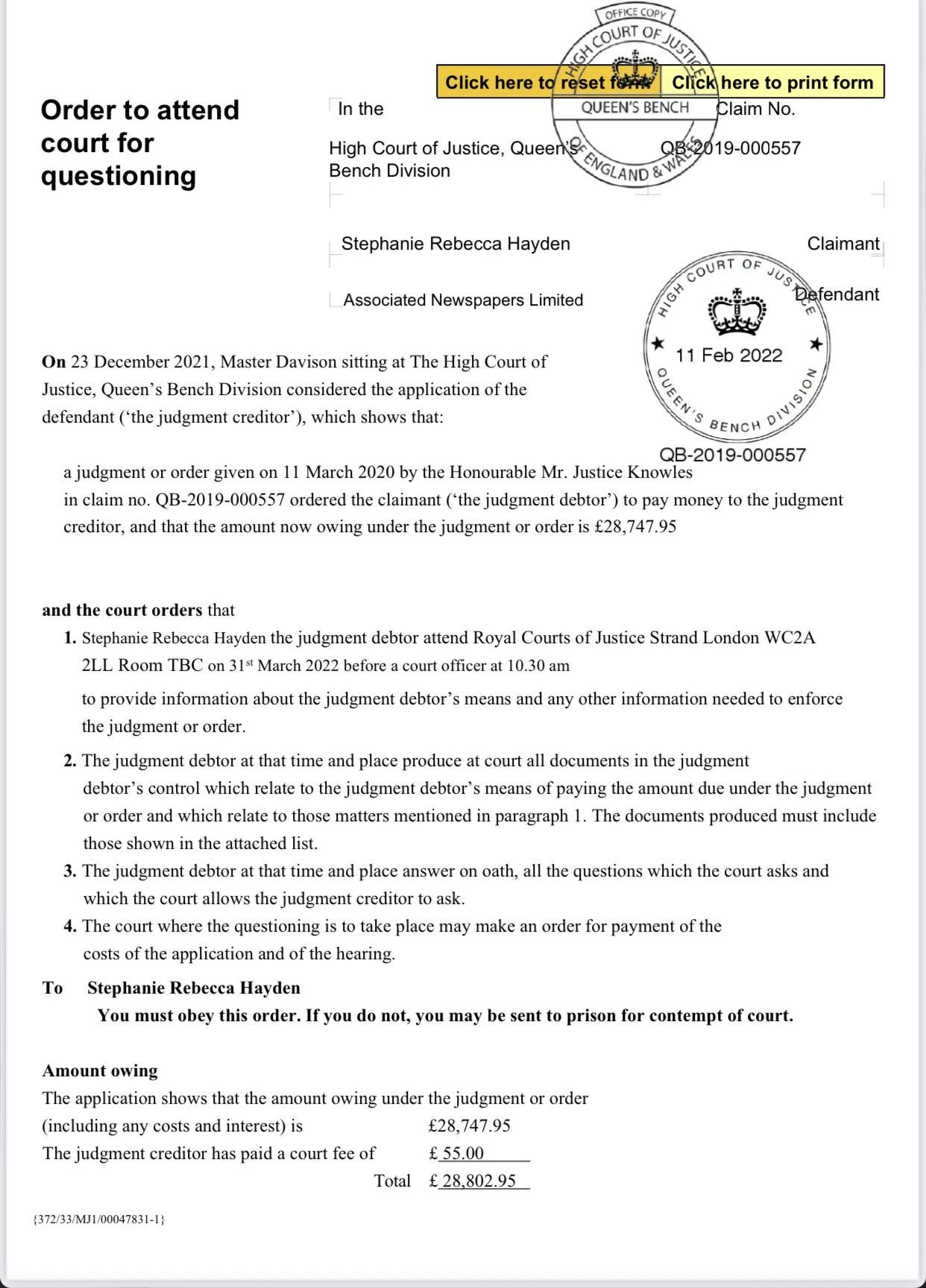
The defendants in the case of Stephanie Rebecca Hayden v Family Education Trust confirmed that Hayden still owes £16,000 in unpaid costs as of 11 February 2024.
Given the controversial nature of the litigation targets: 11 out of the 20 cases listed above had defendants who were women who self-identify as “gender critical” and speak under the protected belief that sex is immutable who publicly question Hayden, members of the public have wondered why Hayden isn’t deemed a “vexatious litigant”.
It is a high legal bar for someone to be declared a vexatious litigant (issued with a Civil Restraint Order). There must be at least two claims or applications targeted at a defendant, and these claims or applications must be found by the court to be “totally without merit”.
To date, Hayden has never been issued with a Civil Restraint Order as the courts have found so far that Hayden’s claim do have some merit. That has not stopped a wave of people asking why one hasn’t been granted.
Hayden’s previous comments about how Hayden has viewed the purpose of litigation does not help either. In November 2013, Hayden tweeted that Hayden was at the Royal Courts of Justice to “file and serve up a good old fashioned dish of revenge”. It seems that attitude has hardly changed in the intervening years according to defendants subject to litigation from Hayden and my own personal experience of correspondence with Hayden.
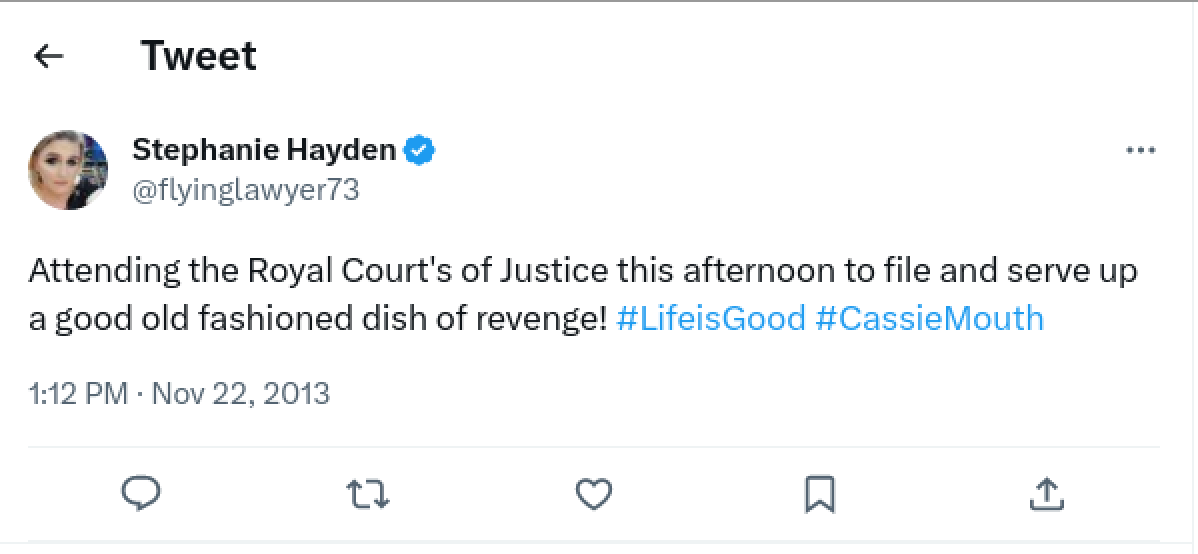
But while our judicial system is adversarial-based (i.e. two sides facing off against each other to convince a judge on presented facts, as opposed to the civil law legal system of inquisition where the judge takes an active fact-finding role), it does not mean that the system is there to punish people or to be used for “revenge”. Some defendants have described the litigation as “the process is the punishment” which is a term that I believe means something along the lines of making the process onerous, stressful, and/or painful for the defendant so they give up and Hayden wins.
Dishonesty
On 7 February 2020, in an article reported by the Daily Mail, during the case of R v Scottow at St Albans Magistrates’ Court, it was read out in open court that Hayden had been before the criminal courts on 11 occasions for 21 offences, including affray and other offences, and had spent 6 months in prison for obtaining property by deception. These convictions have all long been spent and Hayden is rehabilitated under the Rehabilitation of Offenders Act 1974. These are mentioned solely for background context with regards to Hayden’s conduct later on in this article as evidenced by publicly available documents, court filings, and other paperwork that I have been given.
Hayden asserted in an email to me dated 12 February 2024 that the Daily Mail is not a “credible source” and that the article in question is “factually incorrect”. When I put it to Hayden that if that was the case, why hadn’t Hayden asked them to take it down, Hayden refused to answer.
As an aside, that case was later overturned on appeal in Scottow v CPS [2020] EWHC 3421 (Admin) which effectively established the legal precedent of the right to be annoying on social media and even call someone a “pig in a wig”.
A company purporting to be a solicitors’ firm
On 14 August 2018, Hayden incorporated a company called I A Legal (SRH) Limited (company number 11516925), a dormant company that has never traded.
Notably, the SIC code used for this company was 69102. That is the code used to register solicitors’ firms. You can look it up for yourself here.
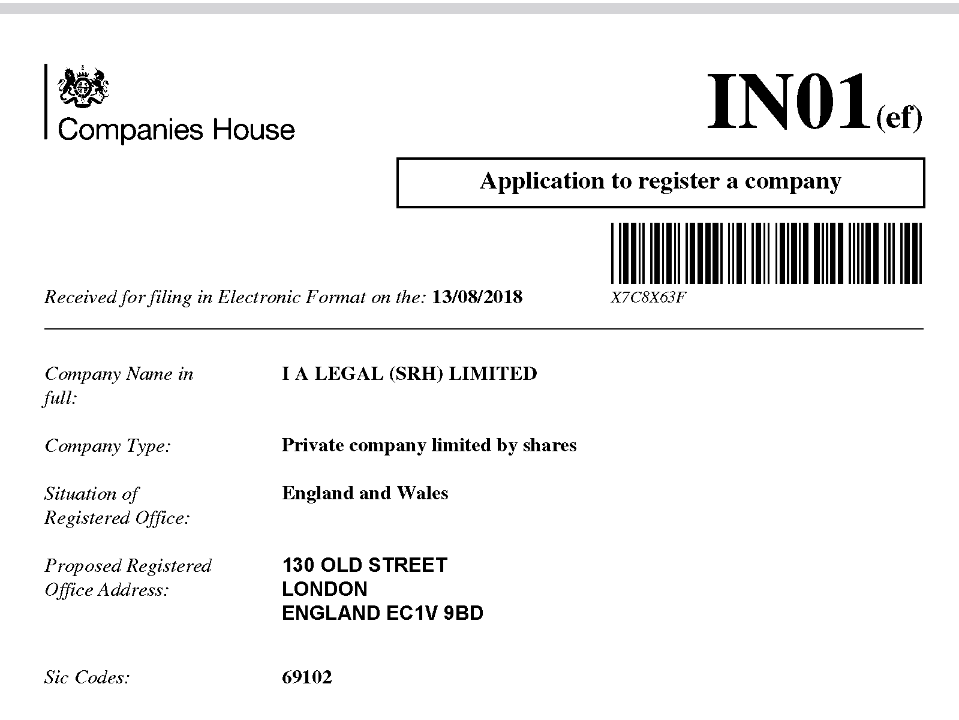
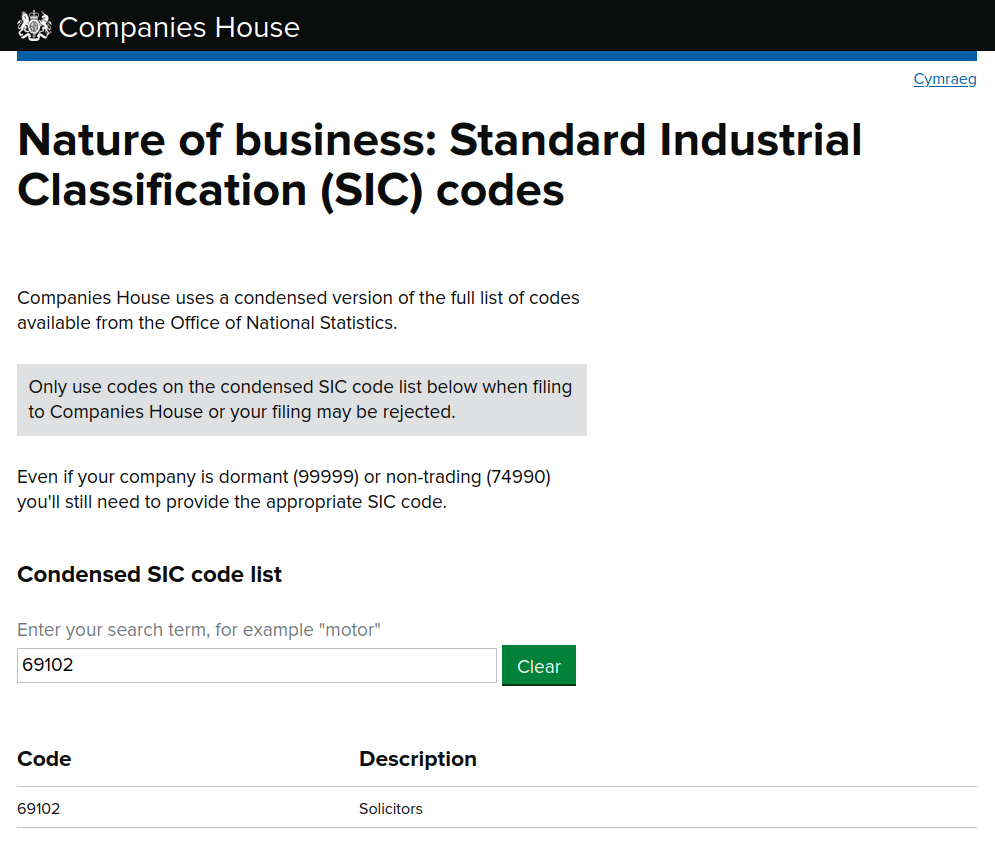
It is unclear why the company was registered with the SIC code for solicitors when the company has never traded and remains dormant as of 11 February 2024. A dormant company cannot have employees, so unless the director is an authorised and qualified solicitor, this SIC code does not seem appropriate to use. Hayden refused to comment.
On 9 May 2019, the company changed its SIC code to 70100, the activities of head offices.
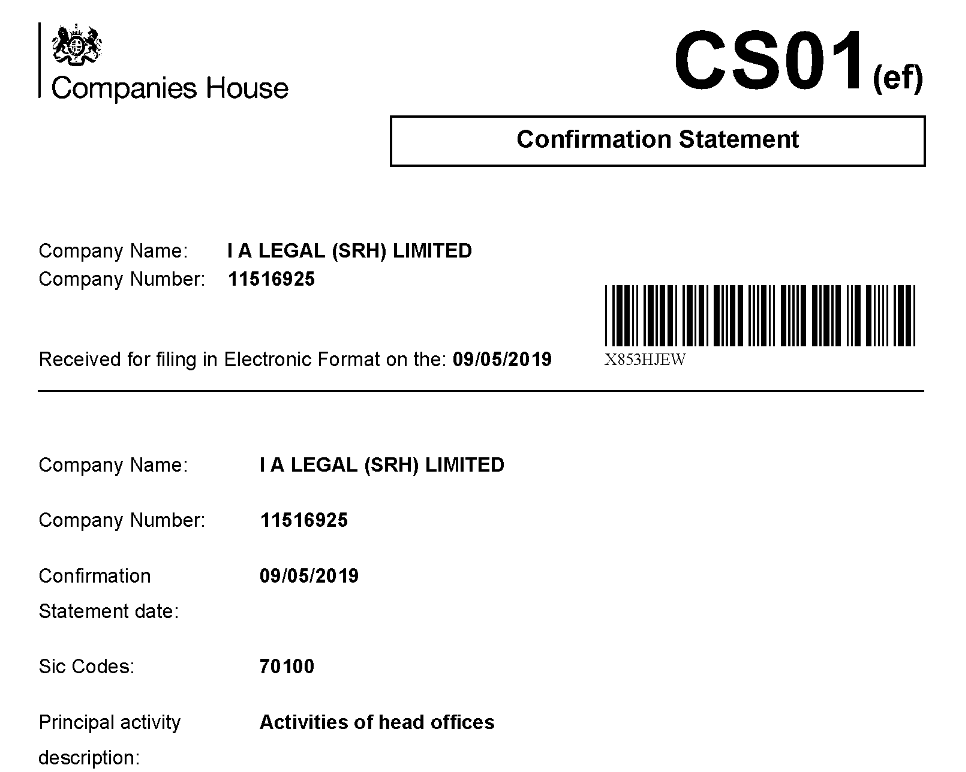
However, there is more clarity over why the SIC code was changed. This is because a complaint was put in to the Solicitors Regulation Authority by a member of the public who alleged that, as sole director of I A Legal (SRH) Limited, they believed Hayden was attempting to mislead the public into thinking that Hayden was a regulated and authorised solicitor, partly by virtue of using the wrong SIC code.
The SRA confirmed that they were looking into the activities of the company on 10 April 2019 and they later confirmed that they had been in contact with Hayden, explained that the use of the term “solicitor” by someone who is not a solicitor is illegal, and that the SIC code had been changed accordingly.
Unauthorised conveyancing and missing money
On 1 September 2016, Hayden incorporated a company called SRH Law Limited (company number 10355646). The sole shareholder and director was Stephanie Rebecca Hayden. The establishment of this company is relevant later on.
Stephanie Hayden has claimed to have legal practise rights. This appears to refer to the Practise Rights exercisable under the regulation of CILEX Regulation. This was asserted to me in an email on Monday 12 February 2024. In the email, Hayden claimed that when Hayden has carried out reserved legal activities, these have been carried out as an authorised person within the meaning of the Legal Services Act 2007. Hayden refused to provide any proof of the additional legal qualifications that carry such entitlement, despite me asking repeatedly so that I could include them in this article.
Hayden has publicly stated that Hayden was a member of the Chartered Institute of Legal Executives from 2008 to 2012. This was confirmed in a statement to Roll on Friday on 27 September 2018. Hayden does not appear to have rejoined CILEX since.
I searched the CILEX Authorised Practitioners Directory for Stephanie Hayden and Anthony G S Halliday (the reason for this will be explained later) and found no results returned.
I also searched the Solicitors Register and Barristers’ Register for both names. No results were returned on either listing. Therefore, I can conclude that Stephanie Hayden is not a practising solicitor or a registered barrister.
Only CILEX Fellows (Chartered Legal Executives) or higher and Practitioners are entitled to carry out reserved legal activities independently, provided they have the appropriate qualifications and a practising certificate, according to CILEX Regulation, the regulator for CILEX members.

Members below that grade are not authorised to carry out any reserved legal activities, unless a specific legal exemption applies to them, according to CILEX Regulation.

An example of a grade of membership below Chartered Legal Executive (Fellow) would be Associate Legal Executive. This has since seemingly been rebranded to “Paralegal”:
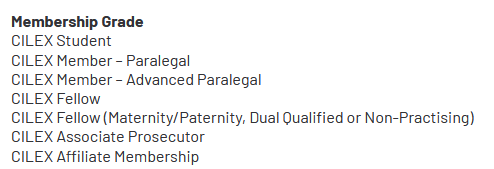
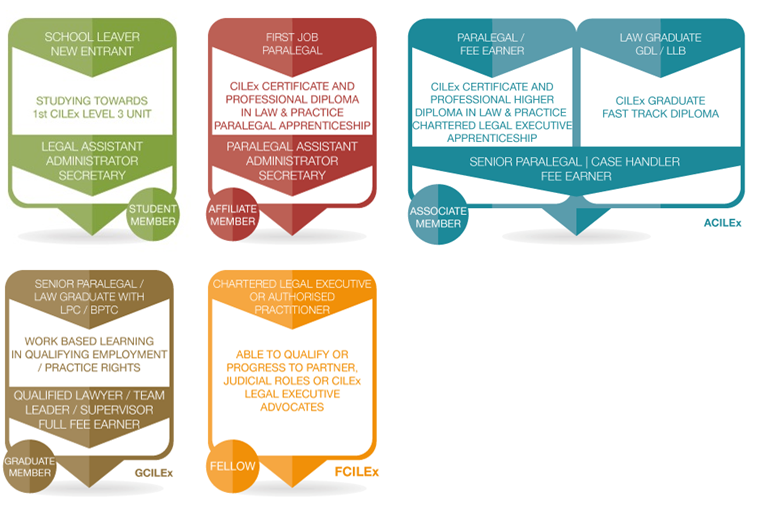
Such a grade would not be authorised to carry out reserved legal activities, such as conveyancing, unless a specific legal exemption applied to them.

I contacted CILEX Regulation to confirm that and in an email dated 13 February 2024, they confirmed the following: (where it says Paralegal, please substitute Associate Legal Executive)
- A CILEX Member - Paralegal does not have a conveyancing practice right
- Information about obtaining conveyancing practice rights is set out in the Handbook. A person who was a CILEX Member - Paralegal would require additional academic training
The Handbook states the following:
A CILEx Conveyancing Practitioner who has been authorised by CILEx Regulation to undertake conveyancing practice will be able to undertake the activities set out at paragraph 9.
However, conveyancing services can only be delivered through regulated entities. Unless you work in an entity that is already regulated you should apply to CILEx Regulation for regulation of your entity.
If you intend to practise independently ie to set up your own practice you must also seek regulation of your entity. CILEx Regulation and other regulators are able to regulate entities. There is a separate application process for entity regulation
CILEX Regulation helpfully provided a table listing the reserved legal activities, and what is required in order to carry out those activities, as well as specific legal exemptions that could apply:
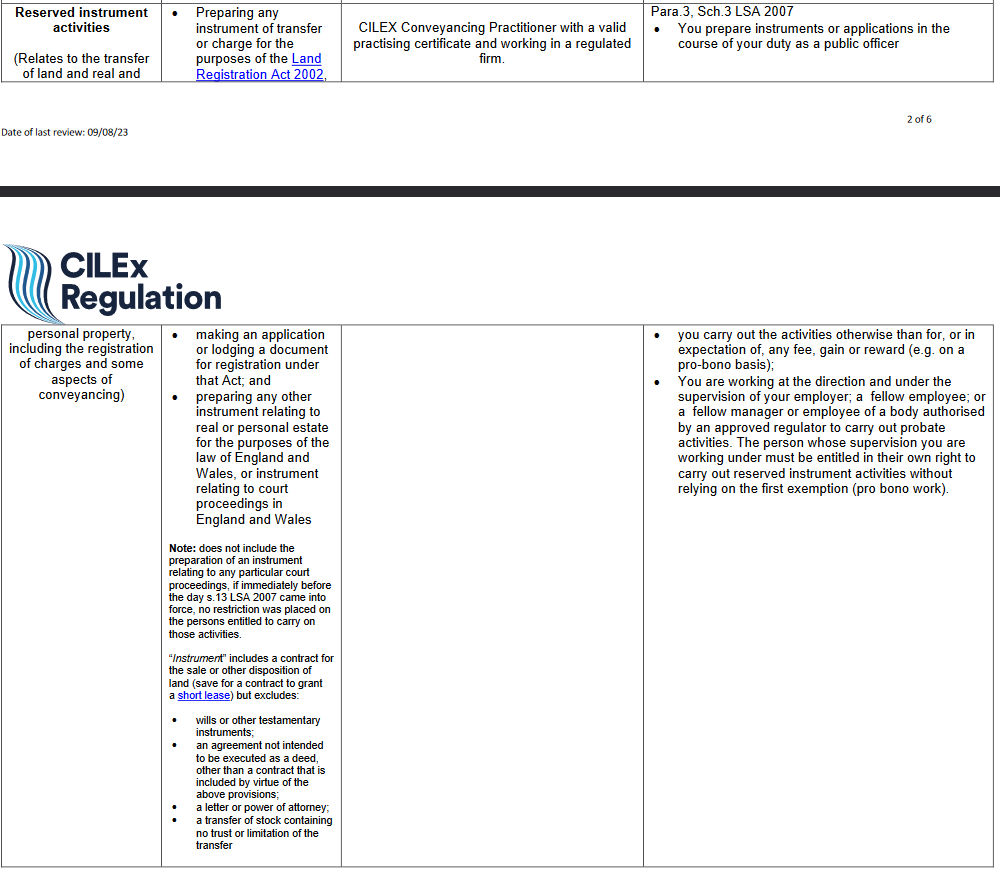
The table states that in order to carry out reserved instrument activities (conveyancing) a CILEX Conveyancing Practitioner would require a valid practising certificate and to be working in a regulated firm.
Alternatively, there are specific legal exemptions if:
- The person prepares instruments or applications in the course of their duty as a public officer
- The person carries out the activities on, effectively, a pro-bono basis, without an expectation of a fee, gain, or reward
- The person is working at the direction and under the supervision of their employer, a fellow employee, or a fellow employee or manager of a body authorised by an approved regulator to carry out reserved instrument activity. The supervising person must be entitled to carry out reserved instrument activity in their own right, without relying on the pro-bono work exemption listed above
Based on my research, I do not believe that any of those specific legal exemptions applied to Stephanie Hayden / Anthony G S Halliday in 2017. I have not found any evidence that either were public officers at the time; the evidence demonstrates that conveyancing work was carried out for a fee (so not pro-bono); and SRH Law Limited was not a body authorised by an approved regulator to carry out reserved instrument activity.
Additionally, I checked the Council for Licensed Conveyancers register for Stephanie Hayden, Anthony G S Halliday, and SRH Law Limited. No results were returned for any of them. It is possible that a CLC license was obtained and then later surrendered, but I have found no proof of that and Hayden did not offer any when I asked via email, and in any event, again the contemporaneous documentation makes no mention of such a license which seems odd if such a license was in effect.
In order for a body to be authorised by CILEX Regulation, at least one of the owners must be an appropriately qualified authorised person:

When I spoke with CILEX, they confirmed that they did not have anyone registered under the name Stephanie Hayden or Anthony G S Halliday, nor a regulated firm under the name SRH Law Limited. They also confirmed that an Associate Legal Executive would not be entitled to carry out conveyancing without supervision by an authorised person while both people were working in a regulated firm, unless that person was an authorised CILEX Conveyancing Practitioner with a valid practising certificate or otherwise authorised.
They also confirmed that such a person practising as a CILEX Conveyancing Practitioner would be listed on the CILEX Authorised Practitioners Directory.
I have found no evidence to suggest that Halliday / Hayden was an authorised CILEX Conveyancing Practitioner with a practising certificate at the relevant time and again, no proof was offered when I asked for it for the purposes of including it in this article.
I have also found no proof that SRH Law was a regulated firm which would be required for Hayden / Halliday to practise independently as a CILEX Conveyancing Practitioner as required by CILEX Regulation. Again, no proof was offered on request.
I believe it to be the case that if such a qualification and title such as CILEX Conveyancing Practitioner had been obtained at the relevant time, it would no doubt have been mentioned in contemporaneous documents at the time because it doesn’t make sense to not mention it in the context of professional work, especially in the matter of conveyancing - the very thing the qualification and title is concerned with. However, it was not mentioned a single time in the correspondence that I have seen.
Having explained the legal requirements to carry out the reserved legal activity of conveyancing, I would now like to cover a specific incident.
In January 2017, a company called Broadway & Docklands Ltd instructed SRH Law Limited in the matter of reviewing a lease for a building they were seeking to rent to run as a restaurant, and to complete the transaction, and transfer associated payments to the solicitors acting for the landlord. This is known as conveyancing and is a reserved legal activity known as reserved instrument activity.
This was evidenced by a client care letter dated 18 January 2017 with the letterhead of SRH Law. It was signed by Anthony G S Halliday, described as a “Senior Consultant”, shown below.
In the letter, Halliday identifies as a “Legal Executive” and a “Director” of this practice. However, only one Director has ever been listed on Companies House: Stephanie Hayden.
Furthermore, Halliday goes on to state that any complaints may be raised with another “senior fee earner” but it is not clear who this would be. Halliday also states that a complaint may be registered with the Legal Ombudsman or Halliday’s professional body, the Chartered Institute of Legal Executives. However, in order for this to apply, Halliday would either need to be registered as a CILEX Conveyancing Practitioner (non-CILEX member status) if Halliday was not a member of CILEX at the time (as I believe to be the case, given Hayden left CILEX in 2012 and seemingly has not rejoined at any point) OR would need to be a member of CILEX.
Self-evidently, given that Hayden / Halliday left CILEX in 2012 and seemingly had not rejoined, it seems likely that Hayden / Halliday would not be a member of CILEX as of January 2017.
So, the only other reasonable explanation is that Hayden / Halliday held the status of a CILEX Conveyancing Practitioner. But we’ll see from a contemporaneous email sent to the client’s solicitors, Hayden / Halliday only states the status of Associate Legal Executive and makes no mention of being a CILEX Conveyancing Practitioner.
Furthermore, I would submit that given Hayden’s proclivity to make critics aware of Hayden’s status as a lawyer, warning them not to make defamatory comments, etc. and associated behaviour, that it is more likely than not that if Hayden / Halliday did possess such a qualification, title, and entitlement, that would be published far and wide to prevent defamatory accusations asserting otherwise. As it stands, Hayden did not provide any proof to me via email, I have not found any proof, and so I believe that under Occam’s razor principles, the answer is simple: the entitlement simply is not there.
Here is the client care letter:
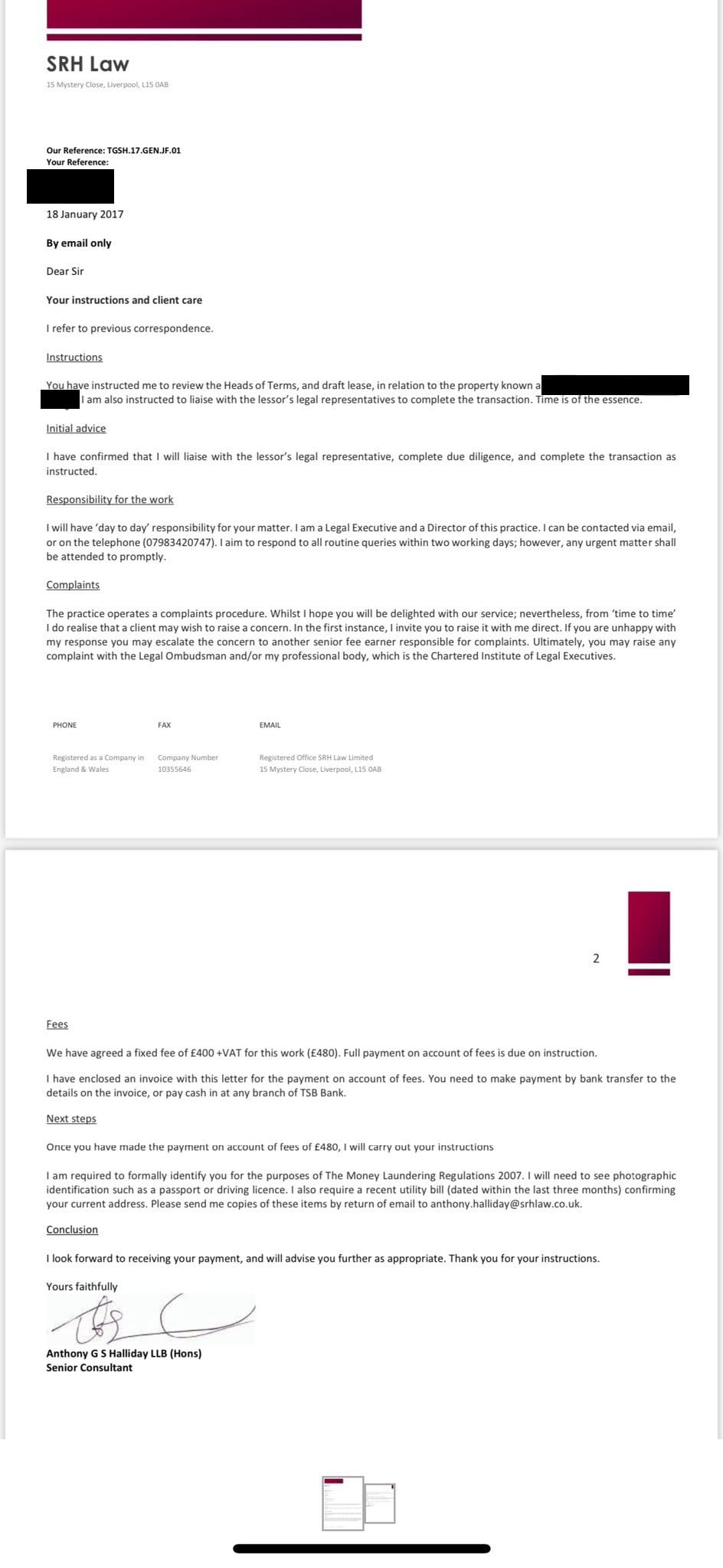
Halliday would later dispute that they were carrying on reserved instrument activities in an email to the landlord’s solicitors stating:
In any event, as you are no doubt aware, the negotiation and execution of a lease less than seven years in duration is not a reserved activity (as it is not subject to registration)
However, that is wrong in law. Under clause 5(2), schedule 2 of the Legal Services Act 2007 and clause 54(2) of the Law of Property Act 1925, a “short lease” is any lease of less than three years duration. A lease of a duration longer than three years would constitute a reserved legal activity.
Indeed, in later contemporaneous email correspondence Halliday confirms that Halliday is merely an Associate Legal Executive at the time. As explained earlier, according to CILEx Regulation and CILEX Associate Level Executives are not permitted to carry out conveyancing unless they are supervised by an authorised person in a regulated firm, or they are qualified as a CILEX Practitioning Conveyancer and hold a valid practising certificate. In this case, it is doubtful that either applied as Halliday makes no mention of it in the email and instead relies on a mistaken belief as to whether the activity is a reserved one or not.
That suggests that Halliday was aware of the nature of reserved legal work and was seeking to avoid being subject to registration (knowing that it was required) and therefore likely knew the relevant CILEX requirements to carry out conveyancing work. This lends further support to my belief that if such an entitlement existed at the time, it would have been relied on in the email.
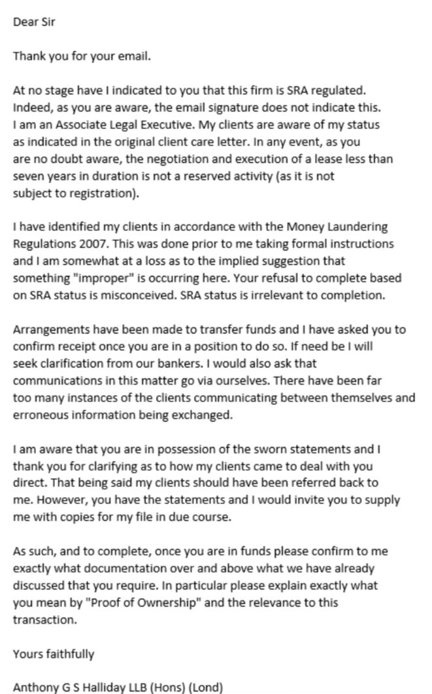
There is no evidence SRH Law Limited was a regulated firm for these purposes, nor that an authorised person who was capable of supervising an Associate Legal Exexutive worked there. CILEX Regulation were unable to confirm such a firm was ever authorised and registered.
It is also interesting to note that VAT is charged on the payment amount, totalling £80 on a fee of £400. However, the letter lacks the required VAT number that would indicate the company is properly registered for VAT.
The VAT number is also missing from the invoice raised for the client. HMRC have confirmed that SRH Law was not registered for VAT.
The bank details for the invoice concern a bank account in the name of A Halliday which inquiries indicate was a personal account. It is unclear why the bank details were not provided in the name of SRH Law. Hayden refused to comment via email when offered the right of reply and the ability to correct factual inaccuracies, so the answer will never be known.
Further email correspondence demonstrates that Halliday describes the account as “my client account”.

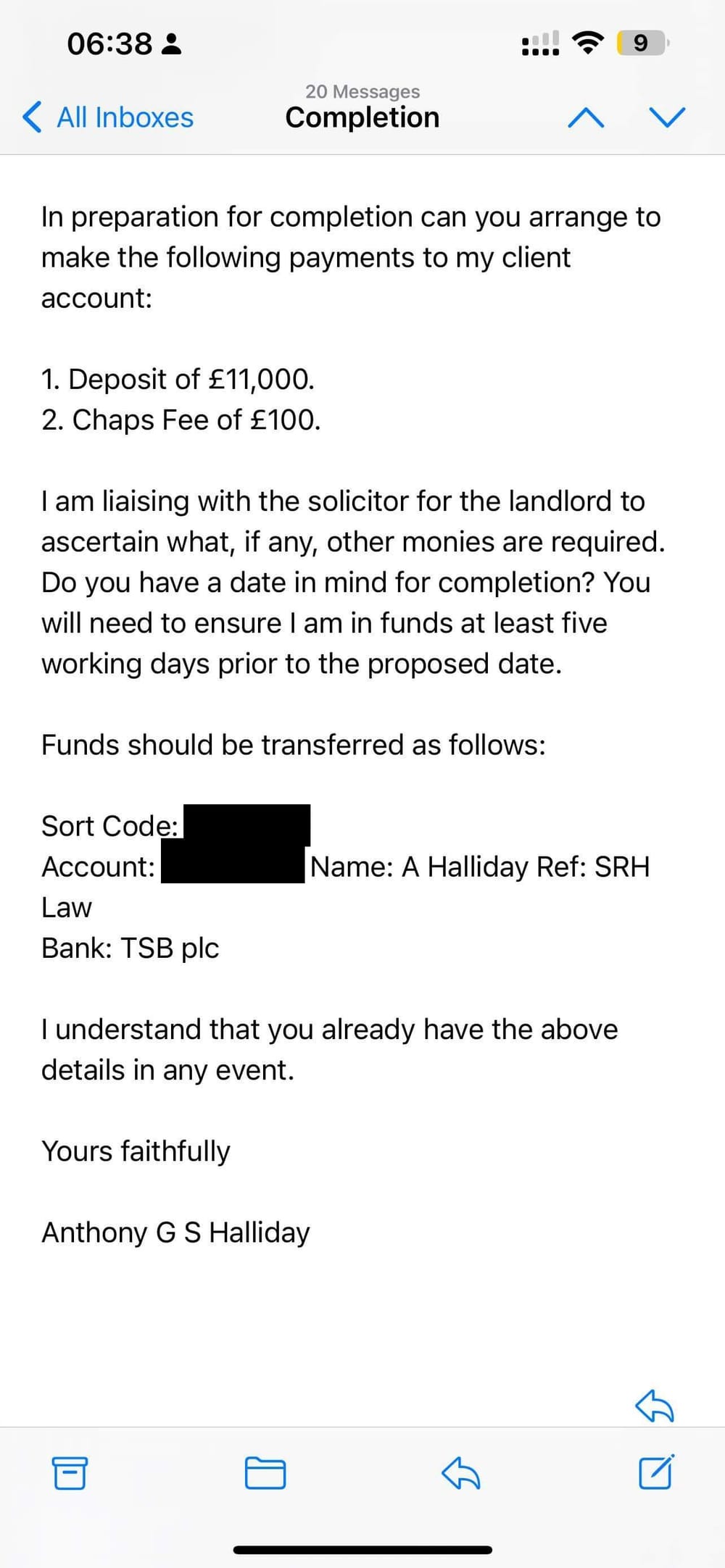
But a client account cannot be held in the name of an individual because individuals cannot, I believe, practise as sole practitioners in the matters of conveyancing under the CILEX regime - it must be held in the name of a regulated firm. So the bank account should have been in the name of SRH Law, ignoring the fact that SRH Law was not a regulated firm.
According to correspondence and bank statements at the time, payment of the client funds was made to that bank account, totalling £11,000. Such a transfer would constitute a breach of the CILEX Accounts Rules regarding the handling of client funds. However, after sending the payment, alleged irregularities with money laundering regulations were raised by Halliday and Halliday refused to act further for the client.
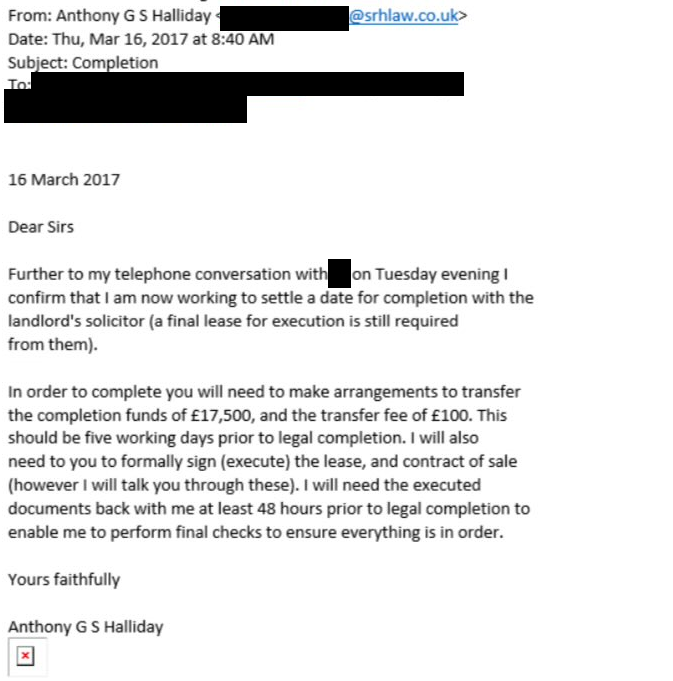
Above is an email sent by Halliday confirming a payment of £17,600 to be made.
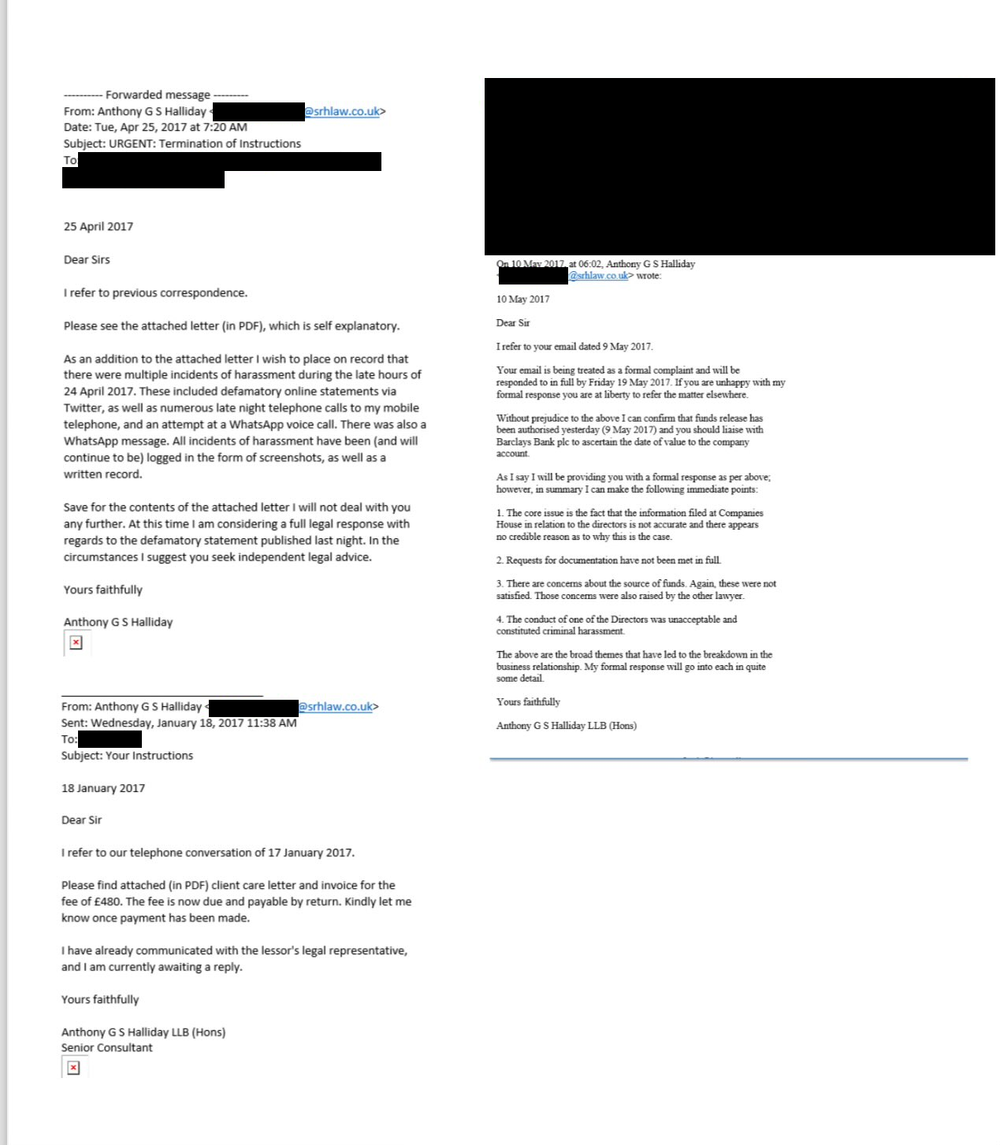
Various emails from Halliday referencing the initial client care letter and fee of £480 (VAT included), an email in response to a formal complaint raised by the client, and an email from Halliday asserting that the client had been harassing Halliday.
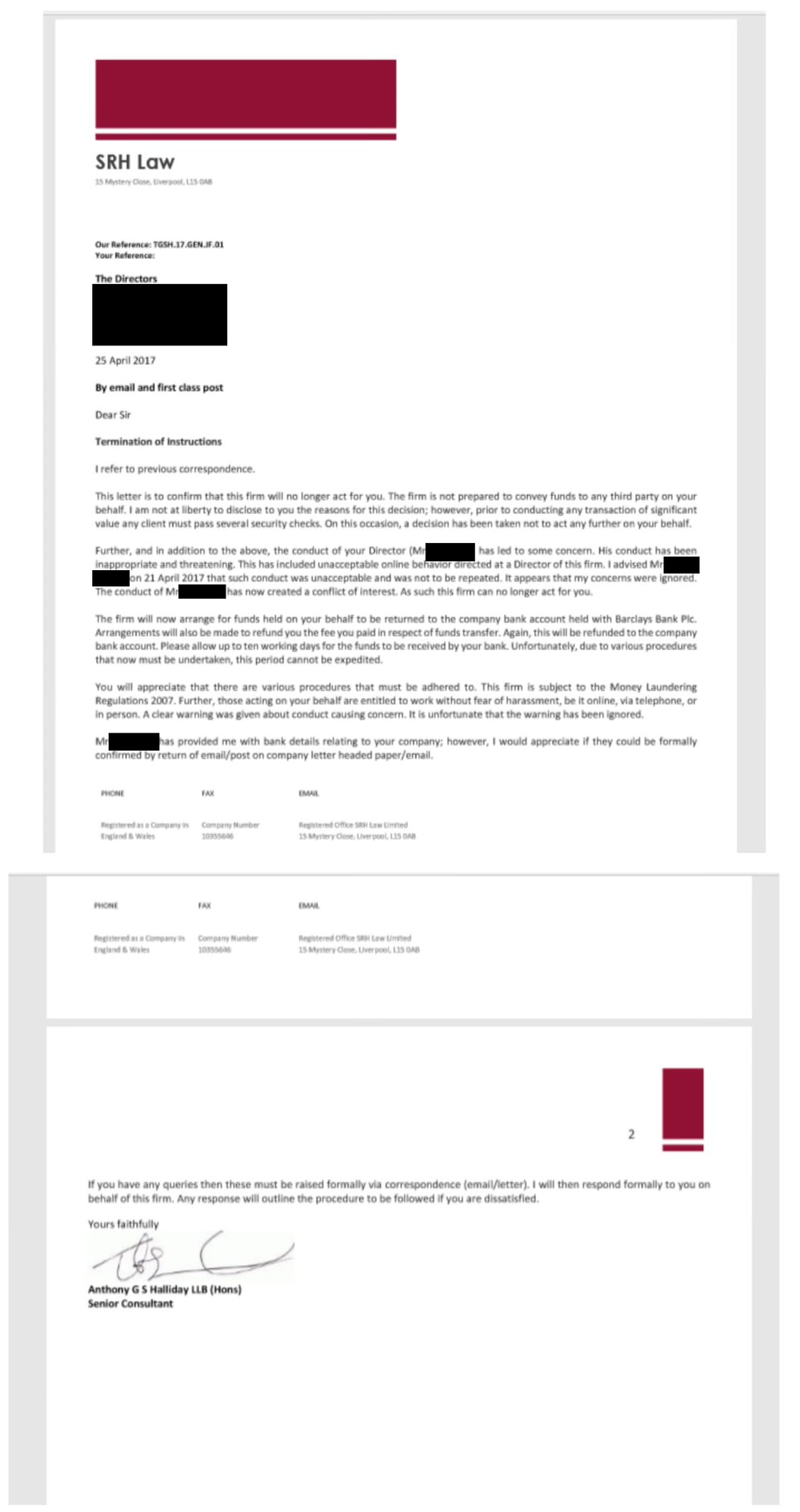
An attempt was made by the client to recover the transferred monies alleged by April 2017 to be £24,000 (although I have only seen evidence of payments made up to £11,000). Halliday seemingly promised to repay the money within 10 days, but payment was not received. Harassment by the client was then alleged by Halliday when the matter was chased further.
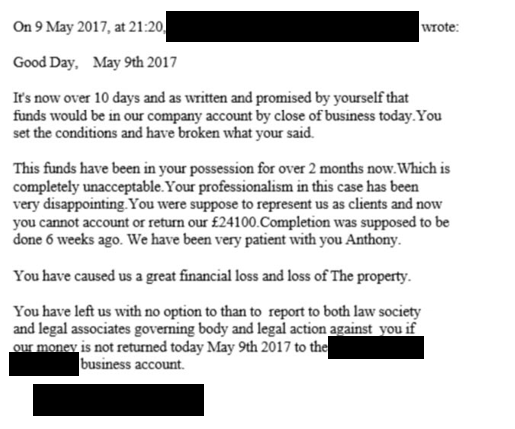
Above is a letter from May 2017 from the client alleging that it had been over 10 days since Halliday promised to return the money.

Above is another letter from the client from April 2017 asking for the return of the completion funds from Halliday.

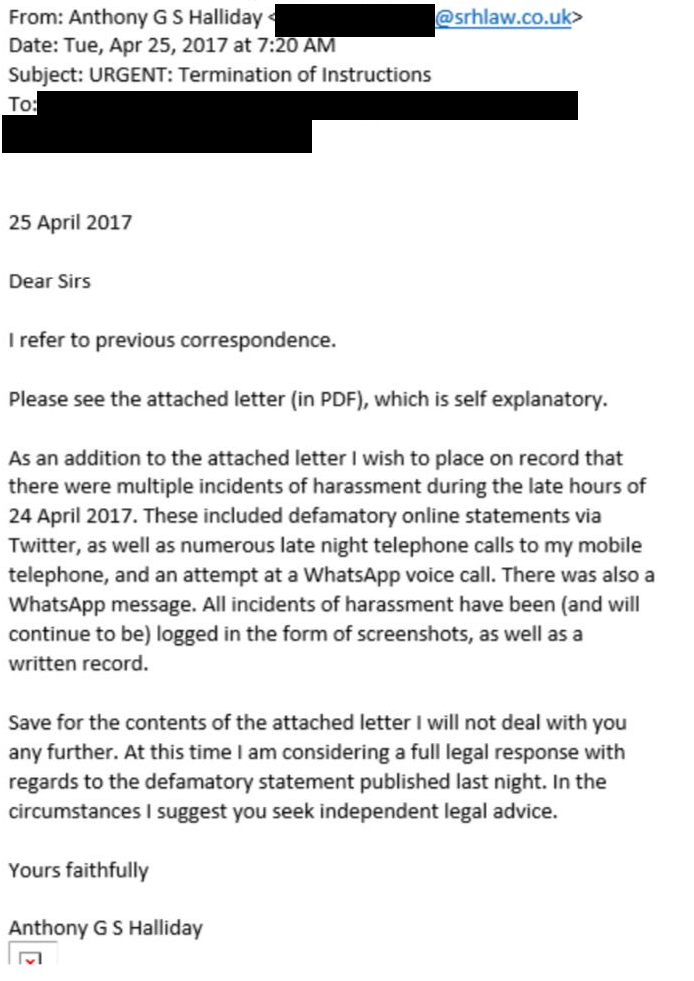
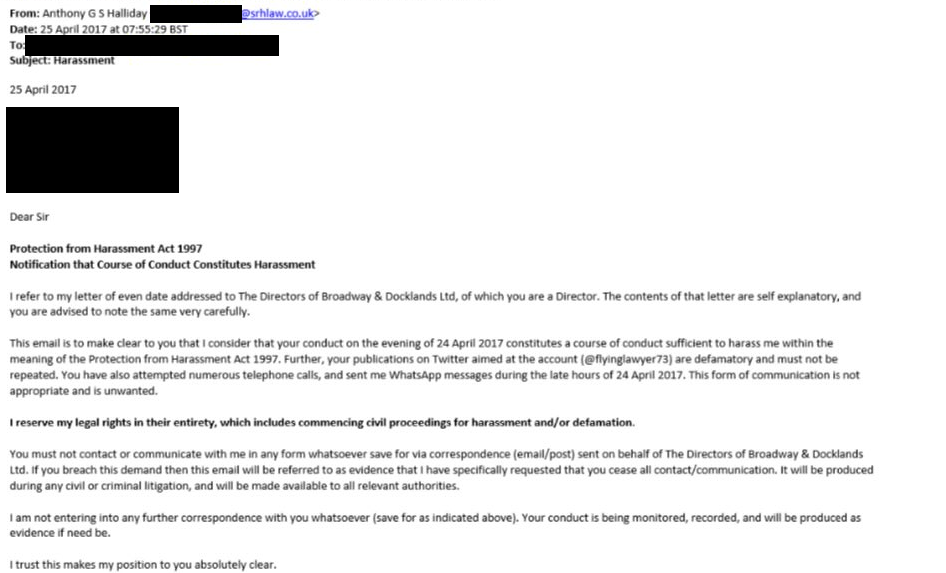
Above, a screenshot of bank tranfers made to Halliday’s account (the same one mentioned on the invoice and relevant emails) and two emails from Halliday from April 2017 allege the client has been harassing Halliday and that Halliday would not deal with them any further.
In February 2018, SRH Law Limited was struck off for failing to file accounts. According to the client, the money was never recovered from Halliday.
Threats made to me
On 10 February 2024, while supporting Sean Doyle in defending a lawsuit that Hayden had filed against him, I received a series of unsolicited emails from a Sharon Stenton. I reproduce them in their entirety below.
It is unclear why anyone would want to threaten me for publishing this article. I have not been able to establish the real identity of that account, or whether Sharon Stenton is a real person and the person responsible for sending those messages.
Hayden has directly denied encouraging, assisting, aiding, abetting, procuring, etc. or being the person responsible for sending these emails and for now I have taken Hayden’s denial on good faith and at face value.
I do not know who “Sharon Stenton” is or why she would want to send me such abusive harassing messages clearly designed to intimidate me into not publishing this article. I only know that I am rightly annoyed that an unknown person would feel it’s OK to attempt to interfere with my Article 10 (freedom of expression) rights on a matter of public interest as a citizen journalist.
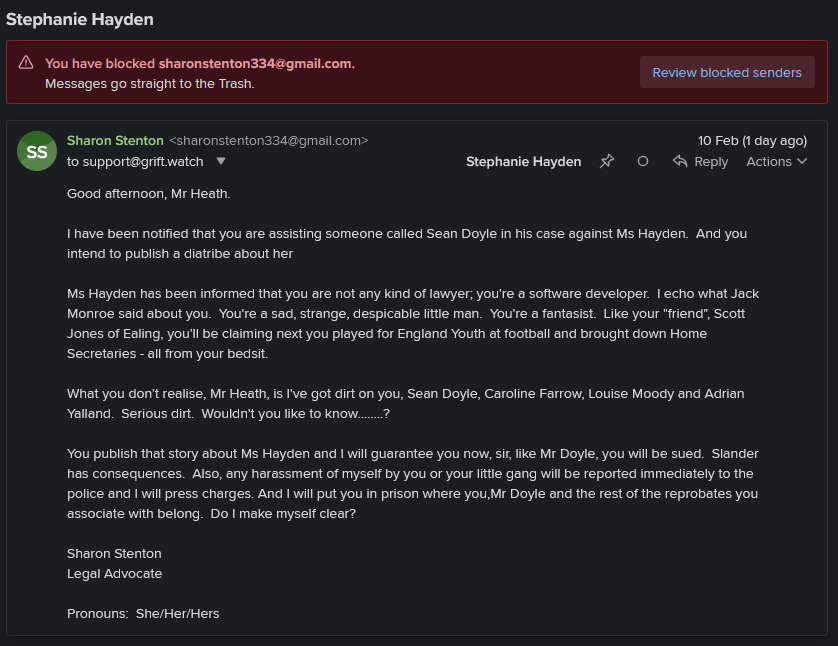
Good afternoon, Mr Heath.
I have been notified that you are assisting someone called Sean Doyle in his case against Ms Hayden. And you intend to publish a diatribe about her
Ms Hayden has been informed that you are not any kind of lawyer; you’re a software developer. I echo what Jack Monroe said about you. You’re a sad, strange, despicable little man. You’re a fantasist. Like your “friend”, Scott Jones of Ealing, you’ll be claiming next you played for England Youth at football and brought down Home Secretaries - all from your bedsit.
What you don’t realise, Mr Heath, is I’ve got dirt on you, Sean Doyle, Caroline Farrow, Louise Moody and Adrian Yalland. Serious dirt. Wouldn’t you like to know……..?
You publish that story about Ms Hayden and I will guarantee you now, sir, like Mr Doyle, you will be sued. Slander has consequences. Also, any harassment of myself by you or your little gang will be reported immediately to the police and I will press charges. And I will put you in prison where you,Mr Doyle and the rest of the reprobates you associate with belong. Do I make myself clear?
Sharon Stenton
Legal Advocate
Pronouns: She/Her/Hers
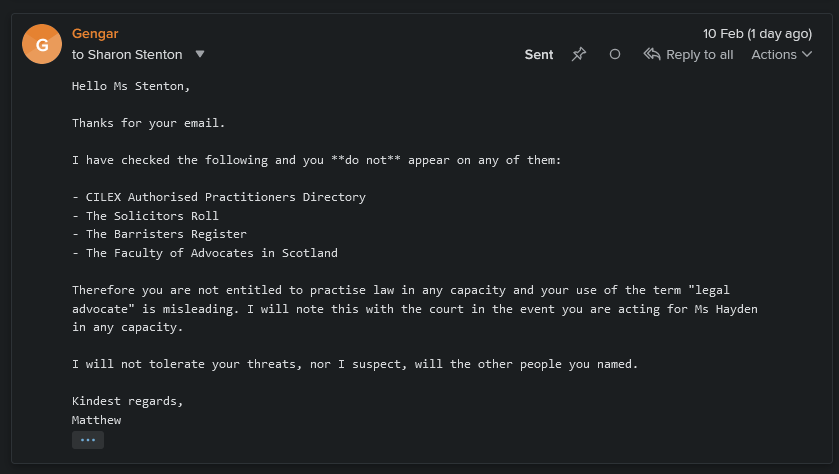
Hello Ms Stenton,
Thanks for your email.
I have checked the following and you do not appear on any of them:
- CILEX Authorised Practitioners Directory
- The Solicitors Roll
- The Barristers Register
- The Faculty of Advocates in Scotland
Therefore you are not entitled to practise law in any capacity and your use of the term “legal advocate” is misleading. I will note this with the court in the event you are acting for Ms Hayden in any capacity.
I will not tolerate your threats, nor I suspect, will the other people you named.
Kindest regards,
Matthew

Let me advise you, Heath, that they’re not threats. Nor am I assisting Ms Hayden in any way. She is a friend of a friend. As you have had the cheek to respond to me when I asked you not to, I shall be passing this on to my local police.
Now go away and fantasise over Jack Monroe. There’s a good boy.
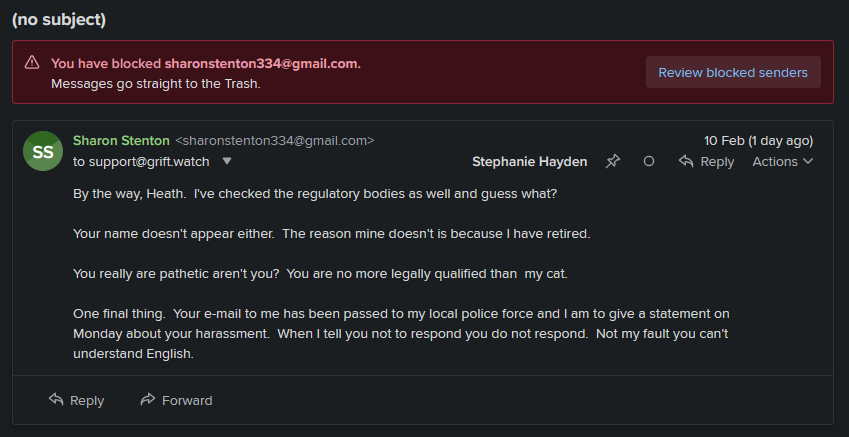
By the way, Heath. I’ve checked the regulatory bodies as well and guess what?
Your name doesn’t appear either. The reason mine doesn’t is because I have retired.
You really are pathetic aren’t you? You are no more legally qualified than my cat.
One final thing. Your e-mail to me has been passed to my local police force and I am to give a statement on Monday about your harassment. When I tell you not to respond you do not respond. Not my fault you can’t understand English.
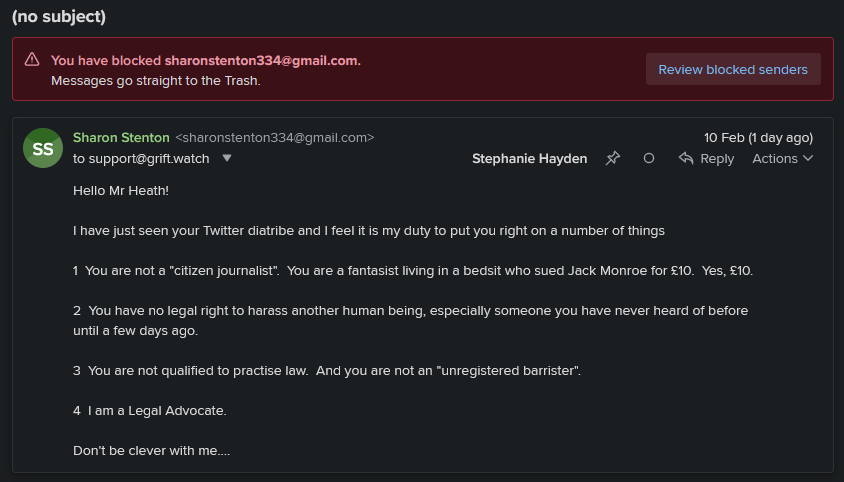
Hello Mr Heath!
I have just seen your Twitter diatribe and I feel it is my duty to put you right on a number of things
You are not a “citizen journalist”. You are a fantasist living in a bedsit who sued Jack Monroe for £10. Yes, £10.
You have no legal right to harass another human being, especially someone you have never heard of before until a few days ago.
You are not qualified to practise law. And you are not an “unregistered barrister”.
I am a Legal Advocate.
Don’t be clever with me….

Hello Ms Stenton,
Please stop sending me emails. I do not wish to communicate any further with you and will be adding you to my “blocked senders” list. Please do not attempt to bypass that block in any fashion including, but not limited to, emailing from other addresses and/or under other aliases.
Kindest regards,
Matthew
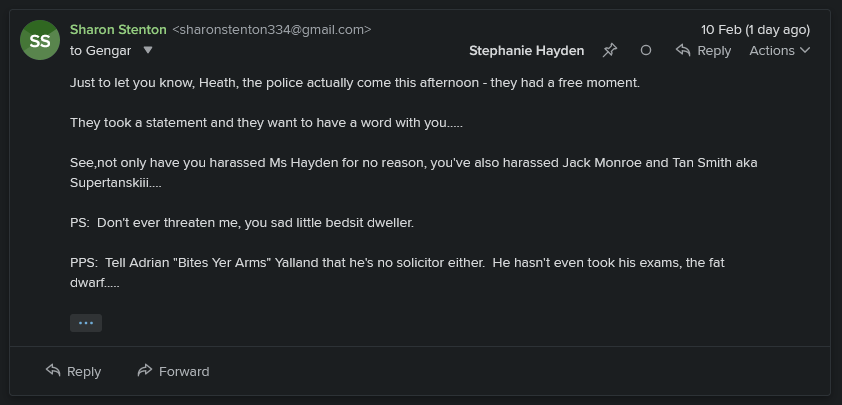
Just to let you know, Heath, the police actually come this afternoon - they had a free moment.
They took a statement and they want to have a word with you…..
See,not only have you harassed Ms Hayden for no reason, you’ve also harassed Jack Monroe and Tan Smith aka Supertanskiii….
PS: Don’t ever threaten me, you sad little bedsit dweller.
PPS: Tell Adrian “Bites Yer Arms” Yalland that he’s no solicitor either. He hasn’t even took his exams, the fat dwarf…..
Conclusion
Reviewing all of the evidence in the round, it certainly seems that members of the public would view Hayden as a serial litigant. Indeed, members of the public on Twitter already think so based on DM conversations and public Tweets.
I believe that Hayden is a serial litigant who’s claims may have had some small amount of merit to begin with, but after witnessing Hayden’s conduct towards me in writing this article, and witnessing the effect that even recalling the litigation had on various defendants, I believe that there is certainly a valid question to be answered about whether the claims are vexatious as a member of the public would understand them.
Although Hayden is not and never has been subject to a Civil Restraint Order, Hayden’s litigation is clearly capturing the attention of the public given the social media commentary available when you search Stephanie Hayden online.
The fact that so many of these claims do regrettably involve women who are speaking out about a protected belief is also concerning, because rightly or wrongly (and I express no opinion here), it gives the impression that free speech is being chilled. It’s an unfortunate look for a democratic country with the bedrock of freedom of expression.
Additionally, it is also concerning when a citizen journalist’s right to freedom of expression, as established in Article 10 of the European Convention on Human Rights, is threatened by unsolicited abusive and intimidating emails from random people online.
I consider this article to be in the public interest because it concerns a self-styled public figure who is a lawyer and who is controversial, and there are legitimate questions asked that Hayden has refused to answer when I asked for comment.
Furthermore, I have written this article to promote the right of citizen journalists (Hayden is also a citizen journalist, operating a blog) to exercise freedom of expression and shine a light on those matters of public interest explained above.
I have presented the facts I have gathered during the course of my investigation, and the evidence to back up those facts. Now it’s up to you to make up your own minds.